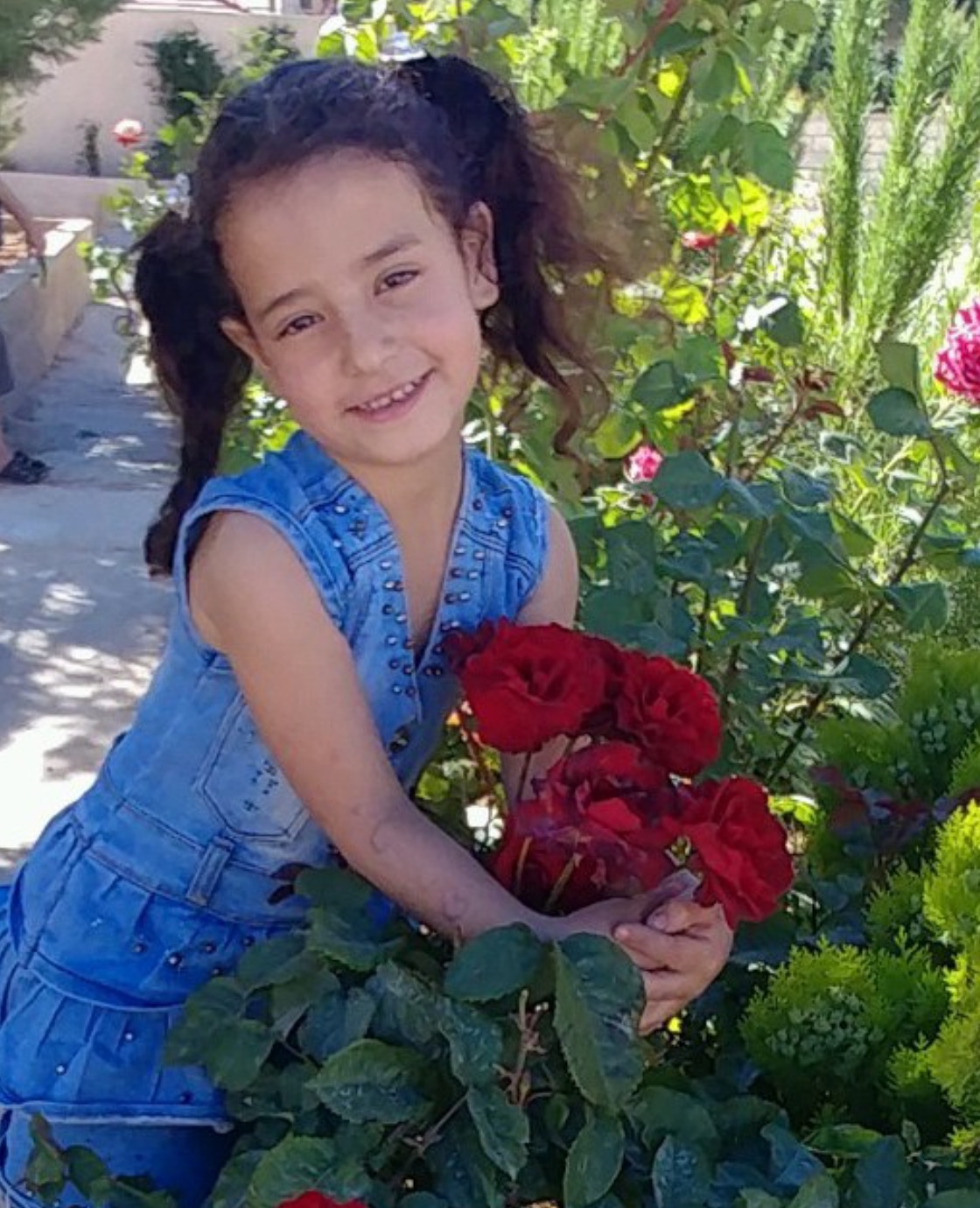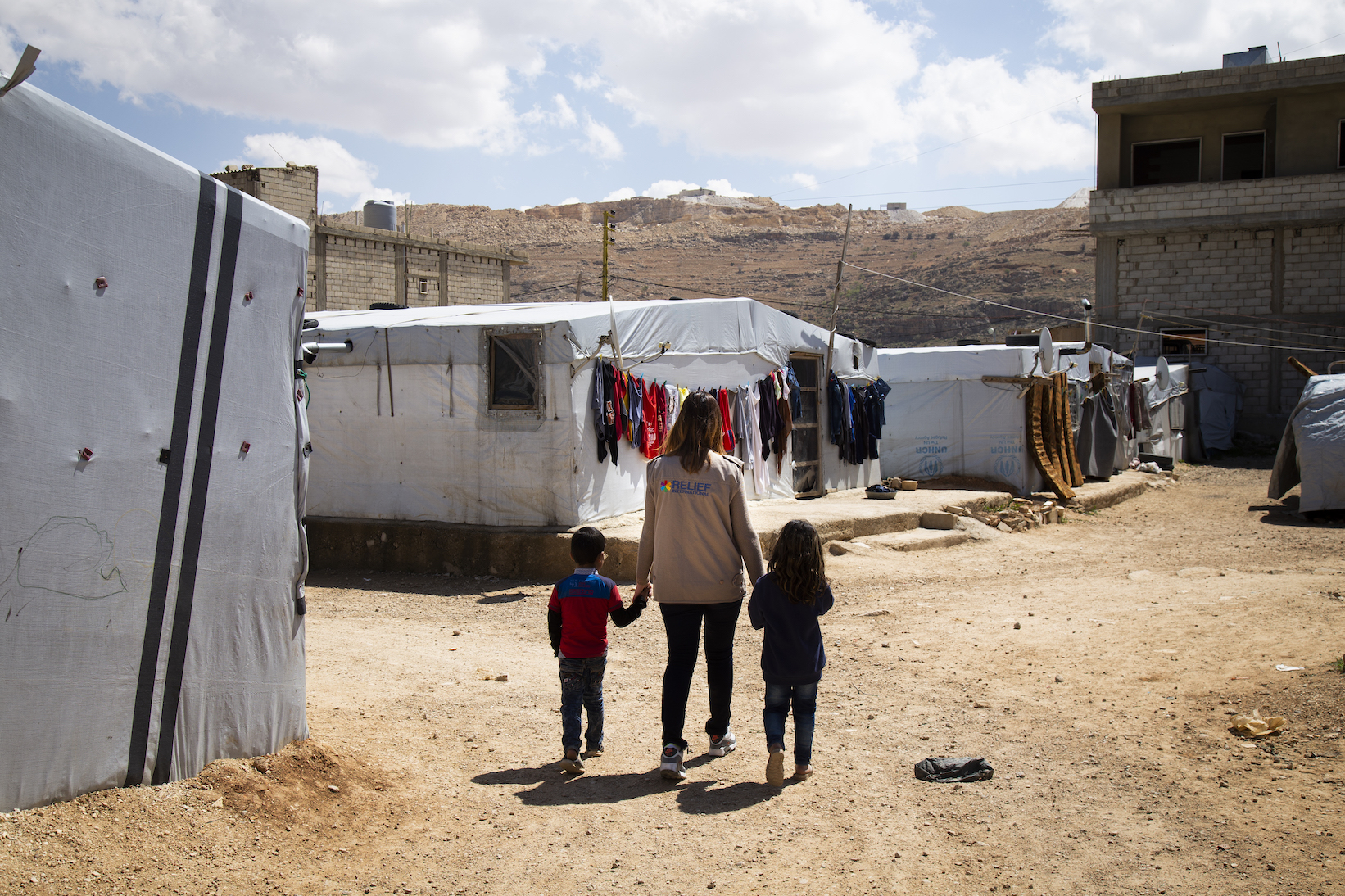
“I was sitting in the living room when a bomb exploded in the corner of the room. We somehow survived it. The house was in rubble. I was injured but I could still run,” says Iman.
Their village was under siege. She ran with her four children, carrying her 11-year-old disabled daughter in her arms. Only women and children were allowed to leave, she had to leave her husband behind.
“We travelled in between explosions and bombs flying over our heads. We had to pass through four different towns before finally reaching the border with Lebanon.”
Not long after they arrived at the informal settlement in Arsal, Rima was born. Iman was relieved to be in Lebanon and that her children were safe, but when clashes spilled over the border into Arsal, Rima began to suffer from frequent nightmares.
Iman says, “She would wake up in the night screaming and crying. I would ask her, ‘What are you afraid of?’ and she would say ‘They are shooting at me!’”
“She didn’t witness the war in Syria so I was surprised she had nightmares because it seems my older children have adapted. Here in the informal settlement, there is a lot of talk about the situation in Syria. I think she would overhear these conversations and it scared her.”
When Relief International’s outreach volunteers visited Rima’s family and offered assistance, Iman explained Rima’s problems sleeping.
“They later called me from the health center and advised we attend sessions with RI’s Clinical Psychologist. I wanted to try anything that would help my daughter,” she says.
Little by little, Rima began to improve. Initially, the counselling sessions took place in person and they continued over the phone when the Covid-19 pandemic began.
“The psychologist gave her the confidence she needed. It was something I wasn’t able to give her, so I held on to those sessions. I saw the difference in my daughter after our first visit,” says Iman.
Rima tracked her progress, drawing a smiley face on the nights she slept and the days she didn’t experience mood swings. Over time she started recording more and more smiley faces. Rima was overcoming her fears and eventually, the nightmares stopped.
Rima says, “I used to be scared of kidnappers, gunshots and thieves. Nothing bothers me now. I’m strong and no longer afraid.” Rima is now a happy seven-year-old who spends her days studying and playing with her toys. She says someday she would like to be a teacher.
Iman’s life and that of her family is not as it was in Syria before the war, but she is relieved that her children are adjusting to the new situation and that her husband has finally been able to join them in Lebanon.
“In Syria before the war, we lived well. We owned a house and my husband worked as a baker. We had everything we needed as a family. Today, we take each day as it comes. What matters now is that my daughter has overcome her trauma from the war.
“If I break, so will my children, so I stay strong and that makes them feel supported. I want my children to achieve their potential in life,” says Iman.
Lebanon is currently home to 1.5 million Syrian refugees, making up for nearly one-quarter of the population of Lebanon. In 2020, Relief International provided physical and mental health services to 18,227 Syrian refugees and vulnerable Lebanese in Arsal, Baalbeck, Lebanon.
*Names changed to protect identity.
